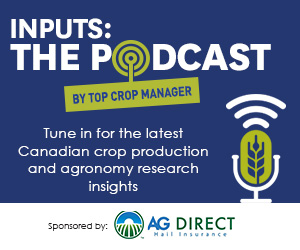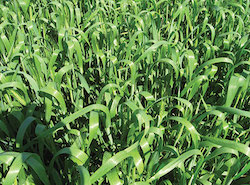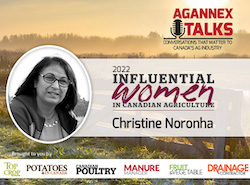| |
| |
 |
 |
| |
 |
|
@{mv_date_MMM d, yyyy}@ |
|
| |
The research team will work to identify sources of pathogen resistance that can be bred into canola seeds.
» Read more...
The online consultation stage will seek input on recommendations to address chronic workforce shortages and build both short- and long-term solutions.
» Read more...
Alberta conditions have also improved, although some crop development is slightly behind previous years.
» Read more...
|
| |
|
| |

It’s said the first cut is the deepest – for forages, it’s also the longest in terms of plant development or harvest interval and giving pesky insects the opportunity to snack on the growing crop.
Christine O’Reilly, forage and grazing specialist with the Ontario Ministry of Agriculture, Food and Rural Affairs (OMAFRA), discusses how the season is going so far in preparation for (or shortly after) the first cut for many forage farmers, as well as scouting and management tips for alfalfa weevil and potato leafhopper, the two major insect pests with which Ontario forage growers must contend.
» Listen now |
| |
|
| |
 In recent years, some producers have gotten accustomed to throwing in some foliar fungicide for leaf disease control when applying herbicides – or applying in a tank-mix with a plant growth regulator. But is this practice justified? When is the right timing for a foliar fungicide application for leaf spot disease, and how much does that match up with FHB control? New research in Alberta looks to determine optimal timing.
» Learn more...
In recent years, some producers have gotten accustomed to throwing in some foliar fungicide for leaf disease control when applying herbicides – or applying in a tank-mix with a plant growth regulator. But is this practice justified? When is the right timing for a foliar fungicide application for leaf spot disease, and how much does that match up with FHB control? New research in Alberta looks to determine optimal timing.
» Learn more... |
| |
 As a young girl growing up in Pakistan, Christine Noronha always had dreams of being a scientist – and an obsession with insects. Noronha, now an entomologist with AAFC based in P.E.I., has devoted her life to the study of entomology, and knows that the smallest pests can have the biggest impacts on yields, livelihoods and the environment. Her research on alternative methods to pest control has been embraced and studied across Canada and beyond. But beyond the bugs, Noronha is also passionate about guiding students and young scientists, particularly young women and people new to Canada. She tells her story in our first AgAnnex Talks IWCA podcast episode.
» Learn more...
As a young girl growing up in Pakistan, Christine Noronha always had dreams of being a scientist – and an obsession with insects. Noronha, now an entomologist with AAFC based in P.E.I., has devoted her life to the study of entomology, and knows that the smallest pests can have the biggest impacts on yields, livelihoods and the environment. Her research on alternative methods to pest control has been embraced and studied across Canada and beyond. But beyond the bugs, Noronha is also passionate about guiding students and young scientists, particularly young women and people new to Canada. She tells her story in our first AgAnnex Talks IWCA podcast episode.
» Learn more... |
| |
|
| |
|
|
| |
| |





